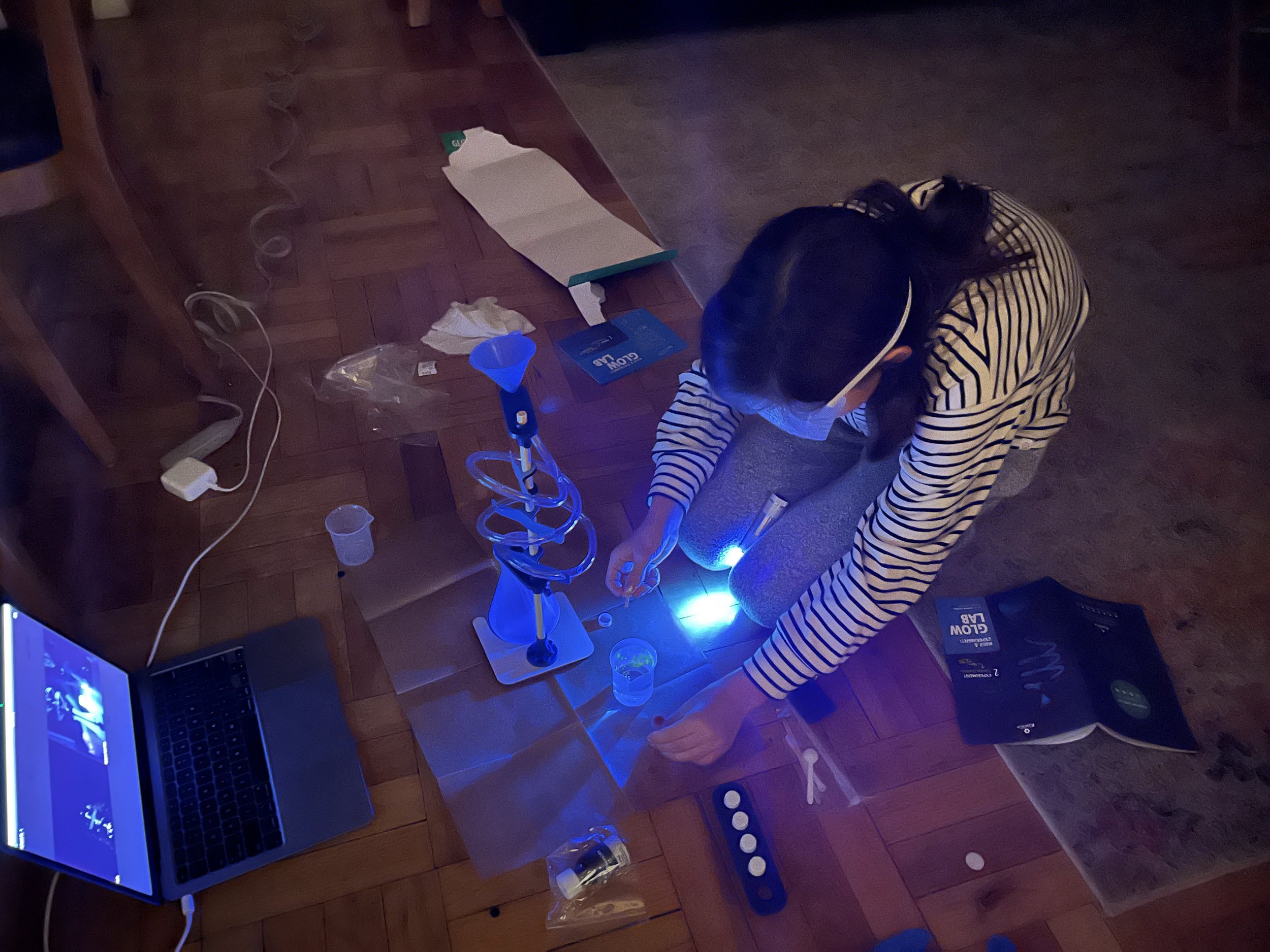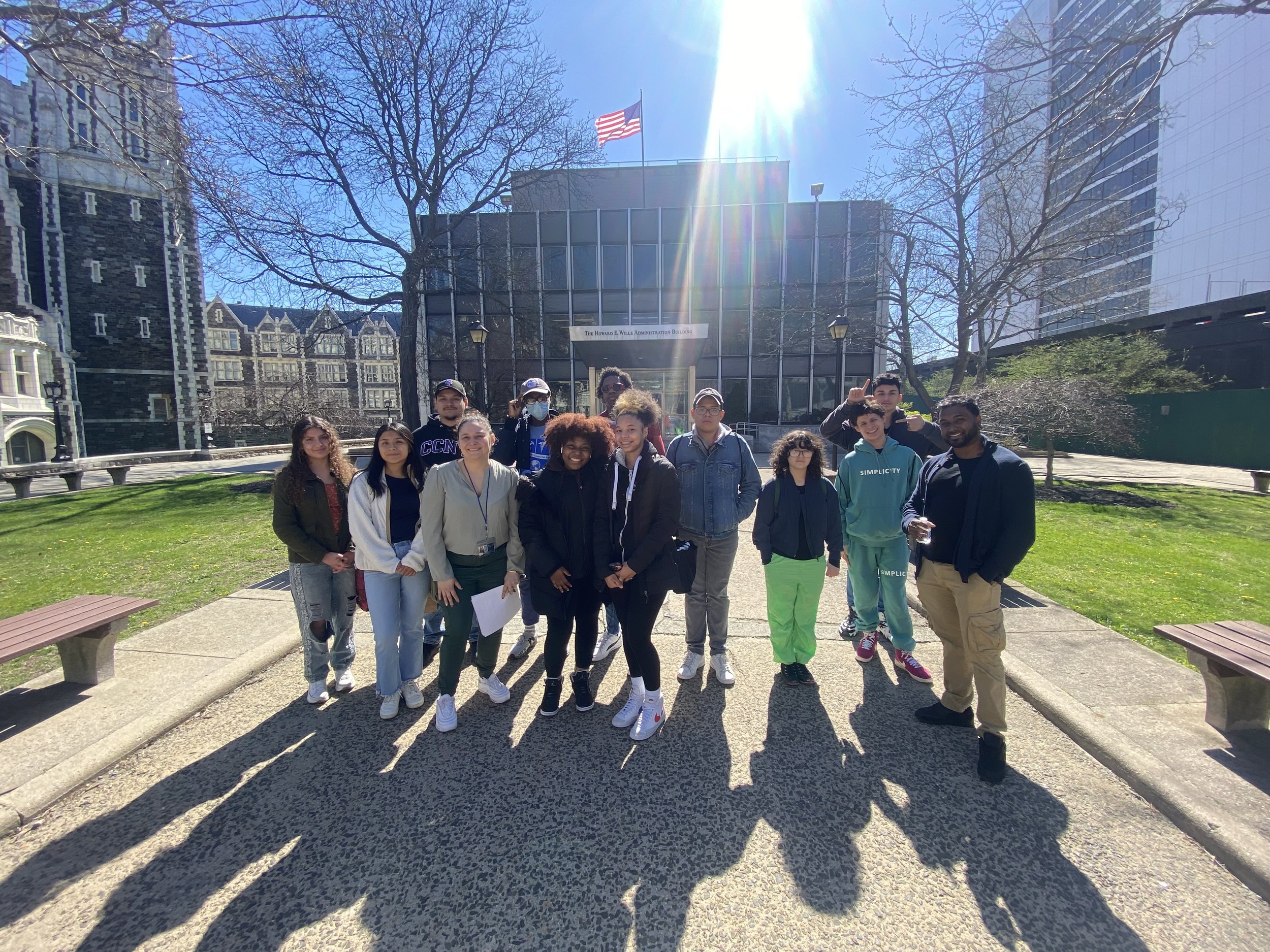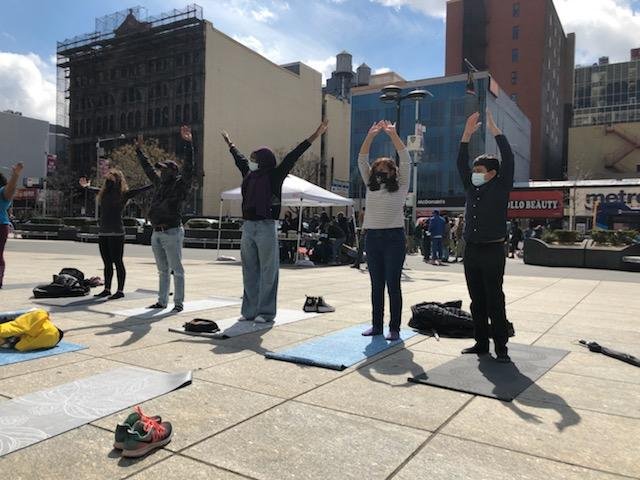CORE PRINCIPLES
1. Experiential Learning
Essential skills, such as critical thinking, complex problem solving, teamwork, communications, and collaboration are best taught through project-based, “active” learning, rather than traditional classroom lectures or textbooks. An example is the use of STEM activity kits enabling mentors and mentees to work together to assemble and test out various projects.
A mentee working on her STEM Kit while on Zoom with her mentor.
2. Student-Centered Learning
Young people from marginalized communities are engaged in learning on their terms and experiences. One example is the Gaming Pathways Program that HGS has launched this Spring 2022. The foundation for this pillar was a pioneering report produced by SAENY in July 2021 on the role that games, especially digital games, play in the academic and personal development of Black and Latinx high schoolers, especially in critical thinking and teamwork. This work was based largely on interviews with our target youth population.
3. The Mentoring Program
One-on-one sessions with a mentor broaden the mentees’ sense of personal and educational possibilities, and the career pathways they are capable of traveling. This program builds confidence in students’ intellectual abilities by pairing youth with individuals like themselves whose stories send positive messages.
“My favorite part of the Program is when kids reach out and ask me for advice or update me on their lives. I love that they feel comfortable enough to reach out to me, even if it’s just to chat. It shows me that they’ve learned to use their support system.”
— DR. VEESHAN NARINESINGH, PH.D.,
DIRECTOR OF COMMUNITY OUTREACH
4. Interactive Exhibitions
Interactive exhibitions are based on themes drawn from students’ experience and interests; for example, sports, music, board & digital games, are used to introduce and broaden student understanding of the role science and technology play in their everyday lives. HGS has created two interactive exhibits to date: “DUNK! The Science of Basketball” and the “Science of Music: Jazz to Hip Hop” (DUNK! turned into an online interactive video accessible through its website after COVID-19 forced closure of the live exhibit).
5. Mindfulness
Mindfulness and meditation are integral to the Mentoring Program, helping students develop positive academic skills, patience, persistence, greater awareness of self and self-control.





